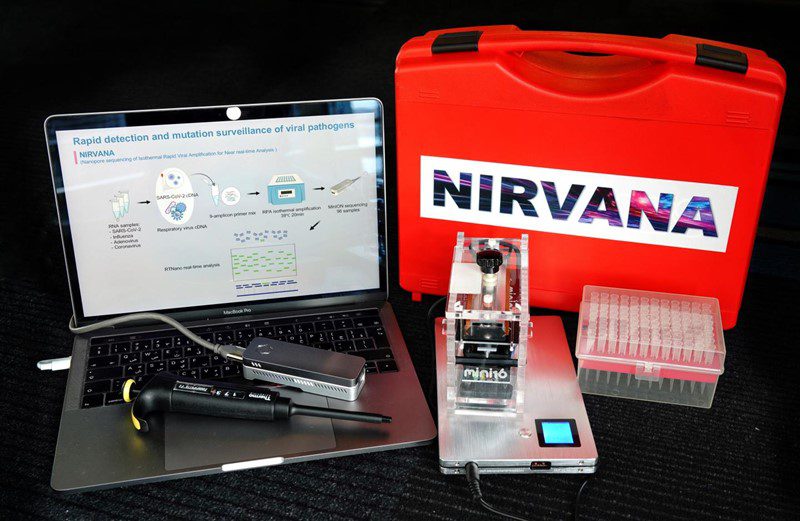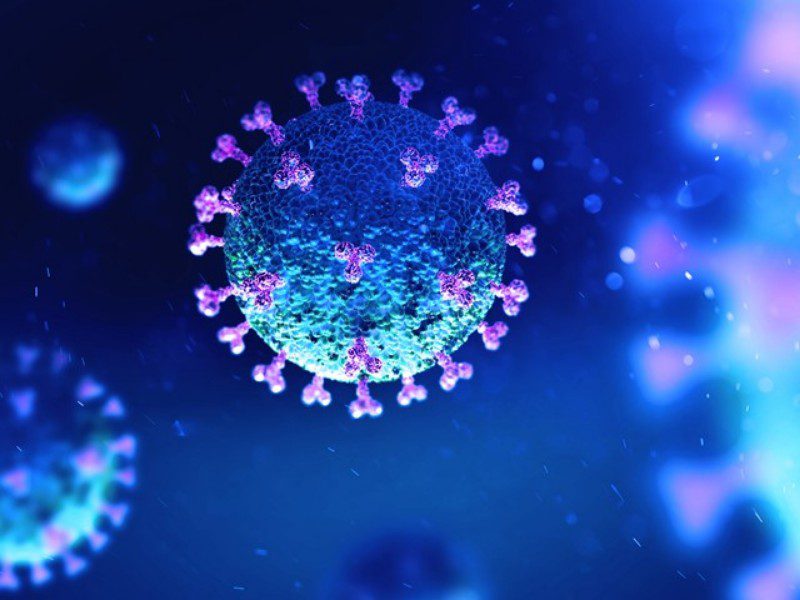A pocket-sized Covid-19 testing machine that takes just minutes to deliver the results has been developed by researchers at the Salk Institute in California.
The portable test, dubbed NIRVANA, can also simultaneously test for other viruses like influenza that might be mistaken for the coronavirus.
At the same time, they can sequence the virus, providing valuable information on the spread of Covid-19 mutations and variants.
“This is a virus detection and surveillance method that doesn’t require an expensive infrastructure like other approaches,” said Juan Carlos Izpisua Belmonte, co-corresponding author.
“We can accomplish with one portable test the same thing that others are using two or three different tests, with different machines, to do.”
Around the world, more than 100 million people have been infected with SARS-CoV-2, the virus that causes Covid-19. Testing the population is key to stopping the spread of the virus and tracking the spread of new variants, some of which could respond differently to treatments or vaccines.

Standard testing kits currently use a nasal swab to run a polymerase chain reaction (PCR) test to detect genetic material from the SARS-CoV-2 virus. If the sample is negative, patients and clinicians don’t get any information on what might be causing the coronavirus-like symptoms unless they run separate PCR tests using different swab samples for other viruses.
The new test uses a gene-detection approach called isothermal recombinase polymerase amplification (RPA) coupled with real-time nanopore sequencing.
Unlike PCR, which cycles through lower and higher temperatures to separate DNA strands and copy them, RPA uses proteiner, rather than temperature changes, to accomplish the same thing in only 20 minutes.
The technology lets researchers copy longer stretches of DNA, and probe for multiple genes at the same time.
“We quickly realised that we could use this technique to not only detect SARS-CoV-2, but other viruses at the same time,” said assistant professor Mo Li.
The small, portable device can screen 96 samples at the same time and can simultaneously test samples for Covid-19, influenza A, human adenovirus, and non-SARS-CoV-2 human coronavirus.
In just 15 minutes, the researchers report, the device begins to report positive and negative results. Within three hours, the device finalises results on all 96 sample, including the sequences of five regions of SARS-CoV-2 that are particularly prone to accumulate mutations leading to new variants such as the B.1.1.7 variant identified in the UK.
Ten samples known to be positive for SARS-CoV-2 were tested with NIRVANA, 60 samples of unknown SARS-CoV-2 status, as well as samples of municipal wastewater harbouring the SARS-COV-2 virus and others.
In all cases, the device was able to correctly identify which viruses were present.
The sequencing data also allowed them to narrow down the origin of SARS-CoV-2 in positive samples; differentiating strains from China and Europe, for instance.
With the small size and portability of the NIRVANA workflow, it could be used for fast virus detection at schools, airports or ports, the researchers say.
It also could be used to monitor wastewater or streams for the presence of new viruses.
The researchers said they were now looking at whether the initial cost of commercialisation, and the constant tweaks to the test needed to make sure it detected new variants or new viruses of interest, are worthwhile.
READ ALSO: Microsoft to sell augumented reality Googles to Army
